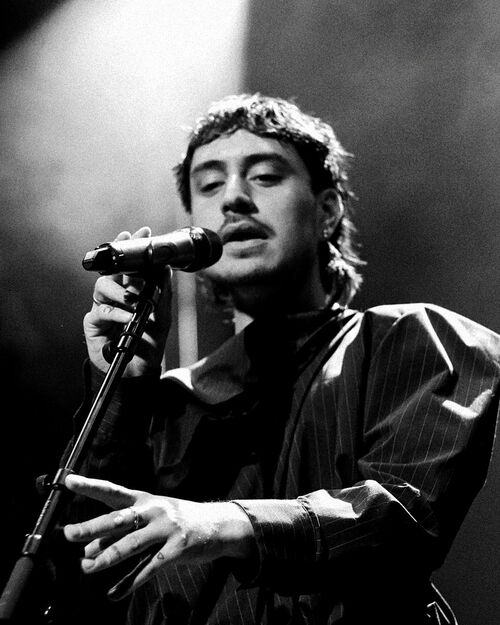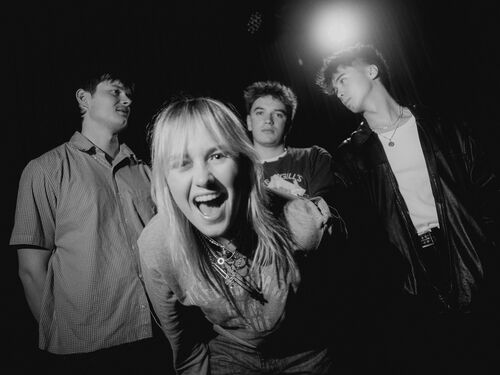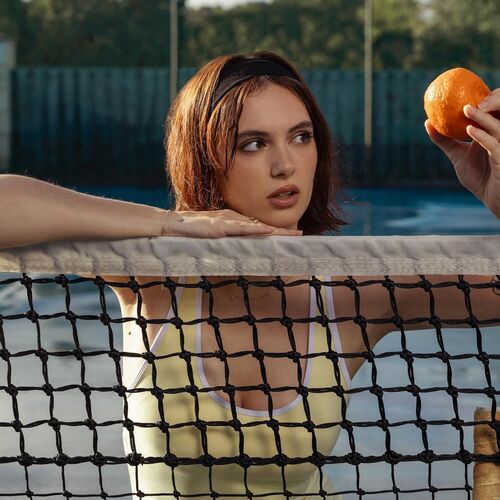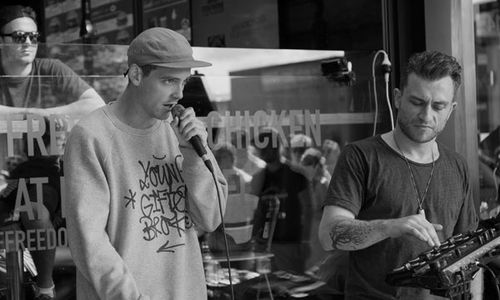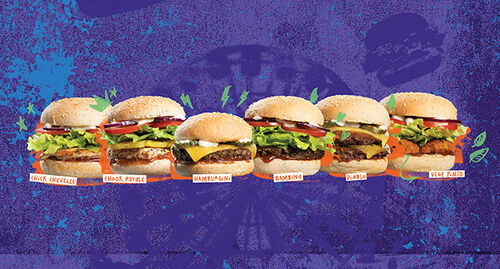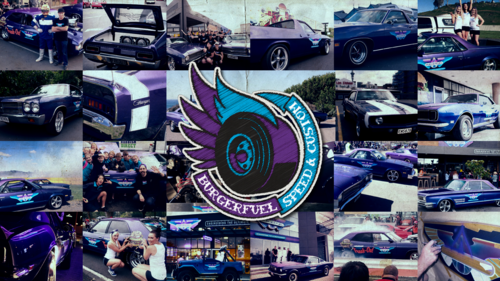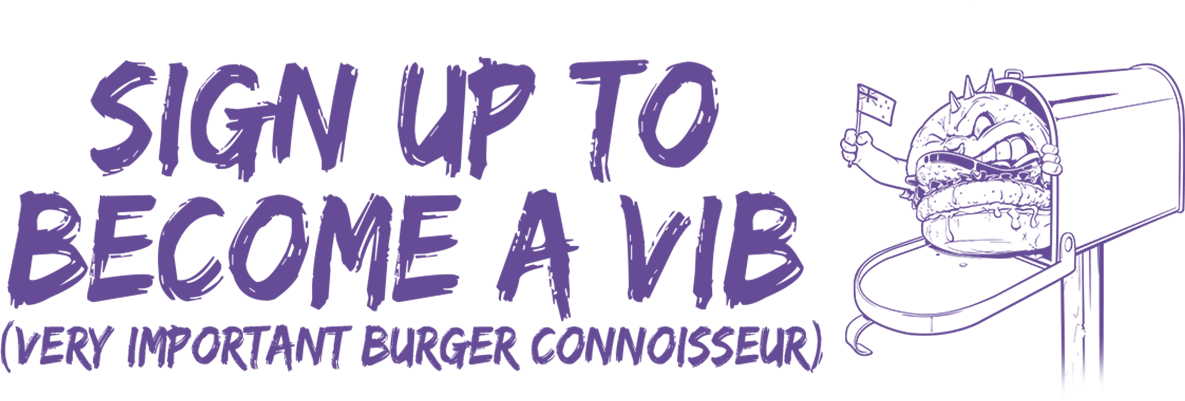A Steely Reluctance
Movement. Phodiso Dintwe’s life has been full of it. From Botswana's capital Gaborone, to Derbyshire in the UK, then to Auckland, New Zealand for a start. But the movement doesn’t stop with those changes of place. There’s the movement of dance, and the part he’s playing in a cultural movement - immigrants to Aotearoa who are moving people with their words and music.

As we talk, it turns out that it’s not actually the first time that Phodiso has been to Radio BurgerFuel. He was a guest at a Friday Night Bites event a couple of years ago featuring Mazbou Q (then Unchained XL). But with his latest EP ‘Act II’ released at the end of May, the timing seemed right for his debut in the purple walls of the studio. Returning to movement. I know ‘act’ is a theatrical term, but it seems fitting that the musical equivalent is movement.
Despite moving from Botswana to the UK aged 5, Phodiso says he has plenty of memories from his first home. “But we also visited very often. It helped me not forget, it compounded all of the memories I had from before. I’d go home and spend some time with my grandmother. And it felt, in those moments, I was living back in the place and not so much visiting. It made it like I live in the UK, and I live in Botswana, then I live in the UK.”
He explains that movement happens all the time if you live in Botswana. “You're either going from a city to the village, and then to another village, then back to the city. My parents are from two different places, and so you kind of grow up going back and forth between those places. And then there's different dialects, there's different cultures. It's almost a smaller version of what the world is like.”
“I go in my Dad's place and I then talk like them, sound like them, dance like them and move like them. And my Mum's place it's the same thing. I go into the city, and city people are different from village people, you just adjust to that. So I think that helped me when I then took that outside of the country.”
“We visited our cousins in parts of South Africa. You go there and they speak a completely different language. It’s a completely different culture. But they're still your people. So you build ways of being able to exist in different spaces. It was the same thing when I went to the UK.”
Phodiso was in Manchester and Derbyshire for most of his time in the UK. He said for the most part he got the space he needed to find himself and his voice in a new country. “I could slip in and exist as a somewhat British person, and then go back to Botswana because I already knew how to be Batswana, and then exist as that.”
It’s been 11 years since he moved to New Zealand with his Mum. After his first visit, when they were still deciding about making a move, he said his impressions could be summed up as “nah, I dunno.”
“It was real different. I think I almost expected like a smaller version of the UK. But, it came out to be an even smaller version of the small version I thought it would be. When we first got here that deep culture shock made it difficult to settle in. And it meant that for a long time, I had to be just quiet and just learn the place. It took me so long to learn New Zealand. It's probably the wrong thing to say, forgive me, but I didn't know for maybe three years that there was a difference between the New Zealand accent and the Australian. I'm sorry!”
“My Mum would talk about times where we felt like we'd learned so many things in different places quicker, but we got here and it just took us a while to really learn New Zealand, you know. And then you get to a point where you feel like ‘oh OK cool. I think I get it now’.”
When asked how his musical journey began, I got an explainer on the complementary nature of Batswana culture. “Music, theatre, dance, and poetry and drumming. All those things to Batswana people are not stuff that you can pull apart. If you’re a singer, then you engage with dance in some way. If you're a dancer, you engage with music. If you're a musician, you engage with poetry somewhere.”
“And the way that you're taught it, is that it's just there. When you're a kid, and it's hard for you to sleep. Someone will hold you, and they'll be dancing as they sing to you. And then other people will join in as they sing. And then eventually that will rock you to sleep.”
“I remember as young as three we'd have little dance competitions, which then would then become kind of almost acting competitions. Just stuff that happens with your cousins and your friends in the neighbourhood. One of the older people sees and says, ‘oh maybe you should join this little dance troupe’. All of theatre performances have people as young as 3, or old as like 98. You're dancing with your grandmother, your cousins, and other people in the village. And you learn just by observing, you learn by being in it. So, I didn't really think actively that I was doing music. I just kind of thought I was doing performance. Maybe even just theatre.”
This all changed by the time he was at high school. He went from hiding under his sheets at night playing PSP, to writing songs and raps, pretending to be asleep when his Mum came in.
“When I was like 15 or 16, I went to a song writing workshop at this program called Mixit. I was horrendous, I was terrible. I wrote three songs in one day and they were embarrassing.
Mo Muse was there. He was amazing. Seydou and Fathe were amazing. Karima was just phenomenal. It was a community thing, and I wasn't doing as well as everyone else. So, for the sake of me wanting to be good, but also wanting to add, and not detract from the community, let me go and learn how to be better. My sleeping habits got worse and worse, because I was like, I love this thing enough to want to be good at it. And that's probably around when I was really sinking into music.
Phodiso still keeps the notes he wrote under his blankets. “Some of them are great to see, others are not. It's cool to see the progress. But yeah, 16,17,18-year-old me wrote about some silly things. That's mainly how I got into music.
At the same time, he started picking up the guitar but “didn’t get great at it.” It was percussion that really drew him in. “It’s probably the only kind of musical instrument that I feel super comfortable with, outside of vocals.”
Our conversation moves toward the music that he has released as Phodiso. Act II, his latest EP comes across as less introspective than Act I. He says he treated Act I like an intro, trying to “bring as much of my feelings in there” to be as honest and earnest as possible.
“With Act II, I'm processing those things, I'm feeling better about certain things, and have gained some clarity on some other things. And so, there's less, ‘here are my feelings’, and more me being like, ‘I felt this’. I think Act II's a little bit groovier, whereas Act I is a little bit chill and listen to the words.”
“If I play songs from Act I live, my friends get all contemplative. They stroke their chin and say ‘OK, OK, OK.' Whereas with Act II, even if I'm saying stuff that's serious-ish, there's a lot of grooving and 'all right, OK, he's saying something'. And that was the motive.”
I mention that I feel like the tracks of Act II take me on a journey, from Grime in the UK on ‘Talk Too Much’, through Africa (with shades of Tinariwen or Mdou Moctar) on ‘Double Double’, and back home with beats as you’d expect from the current hip-hop renaissance in Tāmaki Makarau.
“Our greatest influence is our environment. Me having grown up in very different environments has meant that my influences are of a wide range. And that does make it self-apparent when I make music.”
“With Double Double, it took a while to make. As much as I was obviously wanting to say something, sometimes you make music just to see where it can go. I started it in 2018, and then I'd revisit it and I didn’t know what to do. I’d change one line, or add a shaker, and then I’d leave it. To have that journey get to a place where it means something. And then have it also take people somewhere is cool, because it took me somewhere.”
Phodiso laughs as he remarks “all that to say I'm not really much of a planner.” He describes his creative process as “a happy mistake”, which is a rather insightful peek into a musician’s mind. better I'm trying to be because it would be nice to be efficient.
Even “happy mistakes” can be well thought out. ‘Goat Curry’ and ‘Usain’ (a non-EP single released recently) both clock in at around 90 seconds. “I almost feel like I would have ruined Goat Curry had I written another verse”, Phodiso says. “A friend of mine asked me, ‘why did you make it so short?'. It’s like the difference between a 5-minute documentary and an hour one. Each of them holds their own space somewhere. If I had made Goat Curry more of a feature length thing, it probably would have lost it's juice. I felt like I'd said everything.”
Unsurprisingly, when it comes to playing live, Phodiso demonstrates many of the talents he learned as a youth in Botswana. He plays percussion and brings theatre to his set. “I am doing that slightly Shakespearean thing of savouring the words every once in a while. Heightening up something.” But contrary to what you might expect, he expresses complicated feelings about performing.
“I have a weird relationship with performance where I absolutely love it. I do it, I'm on a high for a long time and it feels great. But the time before that is horrendous. It's awful. I sometimes have arguments with my manager, she'll say, ‘you should book this show’, and then I'm like, 'aaaaargh’. Then I do it and I’m like, 'yo, that was great'. I want to say completely that I love performing, that I love doing these songs. But currently it feels not honest. I think maybe it's just the nerves of being about to get on stage.”
It seems there’s been an explosion of Kiwis with African heritage making music recently. From BLKCITY (JessB, Mo Muse et al), to Mazbou Q. Phodiso doesn’t necessarily agree with this assessment though. “Raiza Biza has been in the game for a time, but he's definitely one of the first few that I knew invested in constantly going after what they loved to do in the musical realm.”
“But with stuff like that workshop that I mentioned earlier. In high school, we'd link up and jam, make tracks and even just do poetry. Because we were seen all the time in our community, we wanted to see that outside as well. We wanted to have people on radio, TV and online that were known for doing these kinds of things. It's nice to get to a point where what we feel and encounter often in our community is also being seen by other people. It feels great that we're contributing to this space. I don't know if I can say that it's sudden, but when you’re in it it’s a real cool thing.”
With that, it’s time to look to the future, and Phodiso’s finale of sorts. Act III was always the plan, “I'm a theatre kid, if anyone isn't picking up on that, you know!”, he says. But the actual reason isn’t that obvious. “Sometimes people think I put more thought into them than I did”, he says. He made a commitment to himself to down three things - five tracks over a couple of years. “If I commit myself to that then I will do it. If I don't, then I don't know if I'm going to put anything out.”
“After Act III, I’ll step back a bit. Re-access and figure out what I'm going to do. There's a joy in being able to say that I've been focussing on music since the end of 2019. But there's also a pain in saying I've been doing music, because it's quite a consuming thing. There comes a time when it starts to feel like work. That break could be me just not writing a song for a month, which I haven't done. Hopefully that will give me the clarity to know what I then should do.
Act III isn’t fully recorded, but “close to” according to Phodiso. With a slightly different feel to the first two parts, he says, “I'm excited to see how people respond to it, and how they engage with it. But I'm also excited to see if what I see in it, will be seen in it.”
Apart from the recent first lineup announcement for The Others Way, there are no plans for more live shows at the moment. “It feels good, because all I'm doing is writing songs.” When I ask if it feels good because he doesn’t have to worry about performing, I get the biggest belly laugh and a hearty “yes” in reply!
Phodiso’s EP Act II is out now to purchase on Bandcamp, or to listen on all good streaming services. See him live at The Others Way festival in Auckland on 17 September, and keep an eye out on his socials in case anything else comes up before then.


